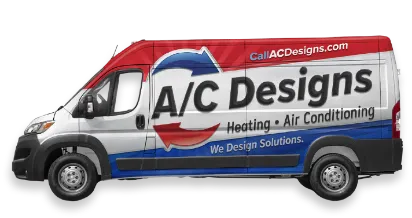What’s the Difference Between Air Conditioners and Heat Pumps?
December 13th, 2022Choosing the right system to heat and cool your home can be overwhelming. It’s normal to feel confused, especially when you come across unfamiliar AC terms. One common question we hear at AC Designs is: what’s the difference between heat pumps and normal air conditioners? Many homeowners don’t realize that heat pumps actually are a […]

